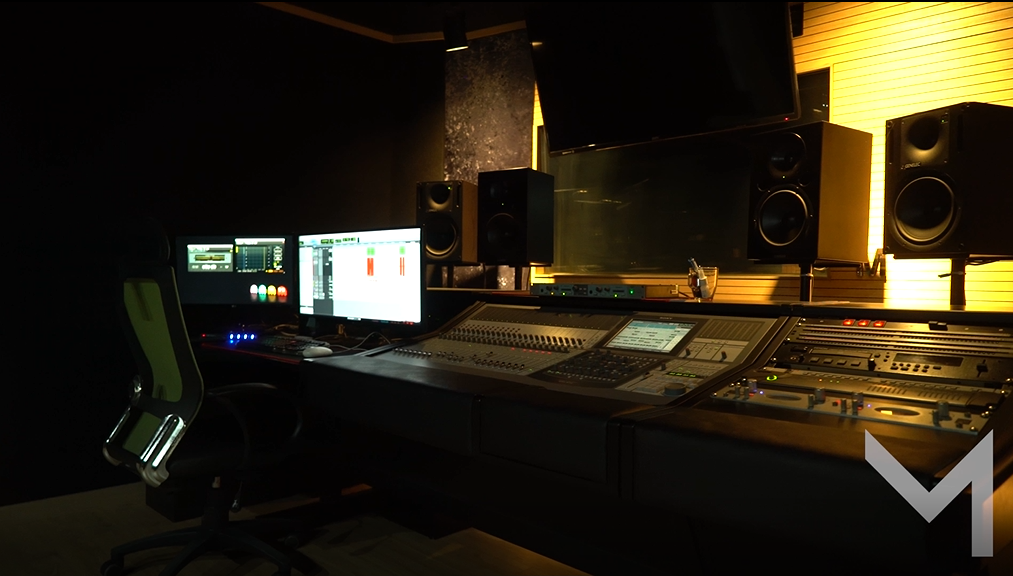[MUSAI] Is Home Recording a viable solution for Game Voiceover?

2020-04-24
With coronavirus lockdowns in place across the globe, inquiries about home recording solutions have increased more than ever. Home recording has stood out as an alternative method and seems natural amid the situation that some countries have taken quarantine measures such as travel suspension and self-isolation, unlike the situation in Korea. To expand on this subject, we would like to talk about home recording for game voiceover as today’s topic.
The brief background of home recording
Home recording is the process of recording voiceover in a private home, rather than a professional recording studio.
Nowadays, recording equipment for professional studios are getting more features in a compact form factor for a cheaper price. However, the price point is still expensive for personal users. Since professional grade audio equipment and acoustic reinforcement was much more expensive in the past, a need for recording voiceover at home was needed. This is how home recording started.
Depending on the required level of quality and budget for a project, clients decide where to go for the recording session. If the game allows for a sufficient budget and requires high quality recordings, it’s natural to work with a professional studio. On the other hand, if the quality doesn’t need to be professional (i.e. Amateur grade) and the budget is limited, they may consider home recordings as an option.
The possible issues of home recording
1. Recording environment
In a professional studio, all the variables which can affect the overall quality of the recording are taken into consideration before, during, and after the recordings. These include the use of properly treated recording booth acoustics, types of microphones and signal path, and all the necessary audio settings to maintain a clean, clear, and optimized audio signal, to provide the best possible quality to meet the client’s technical specifications.
As for home recordings, it is almost impossible to control the environment and settings for every voice actor. That is, every voice actor would have different recording environments, which results in inconsistent sound qualities, despite the use of professional recording equipment.
2. Equipment (Software & Hardware)
Clients usually have specific requirements according to their game. To meet their demands, certain types of recording software and microphones are used, and professional equipment is needed to match the specifications required for the game. Meanwhile, the equipment used for home recordings may not have sufficient specification or capabilities to maintain the requirements.
3. Artistic directing
The absence of an artistic director can create totally different results to the recording performance. In the case of recording at a professional studio, an artistic director who fully understands the contents is in charge of the whole recording session and directs the voice actors’ performance creating a consistent acting style and sound palette intended for the game. As for home recordings, the lack of an artistic director can dramatically change the overall quality of the game, creating inconsistent performances and intended sound character of the game. Even if the art director attends the home recordings remotely, the nuances in performance and projection are not easily caught when using remote audio/video streaming services.
4. Recording expertise
Professional recording studios utilize experienced audio engineers, who have technical and creative knowledge to maximize the quality of every recording. Whereas, voice actors may not be familiar with the provided recording hardware and software, let alone, proper recording techniques. This often overlooked aspect of home recording can make a “AAA” game sound like a low budget personal project ( no offense to all the great game makers out there )
5. Cost
With the current COVID-19 situation, if home recording is the only choice for the project, there are two alternatives to consider. First, only cast actors who already have recording equipment at home that they are familiar with. Second, the use of online recording with the presence of an artistic director and audio engineer.
These two options are viable, however, the cost may be higher than the use of a professional studio. This is due to the increased working hours of artistic direction and audio engineering that are incurred from assessing and addressing all of the issues and troubles that can be introduced from home recordings.
Can home recording be an alternative solution for professional studios?
Home recording can be a temporary solution in the case of the current coronavirus crisis. However, the risk of poor overall audio quality should not be overlooked. There may also be no benefits in terms of the cost either.
In Korea, all the voice actors and professional studios are running as usual without the effect from the COVID-19 situation. Thus, home recording doesn’t need to be considered in Korea fortunately.
The future of home recording
Voice recording and audio technologies (e.g. voice recognition, speech engine, text to speech, speech to text, etc.) are developing considerably day by day. There is still a long way to go before we can replicate the natural human voice, but we carefully expect that it has a huge potential and possibility to replace home recording in terms of convenience and cost.
** Did you enjoy the news of Musai? Please click subscribe and share the story.
Boost Your Play! Musai Studio







